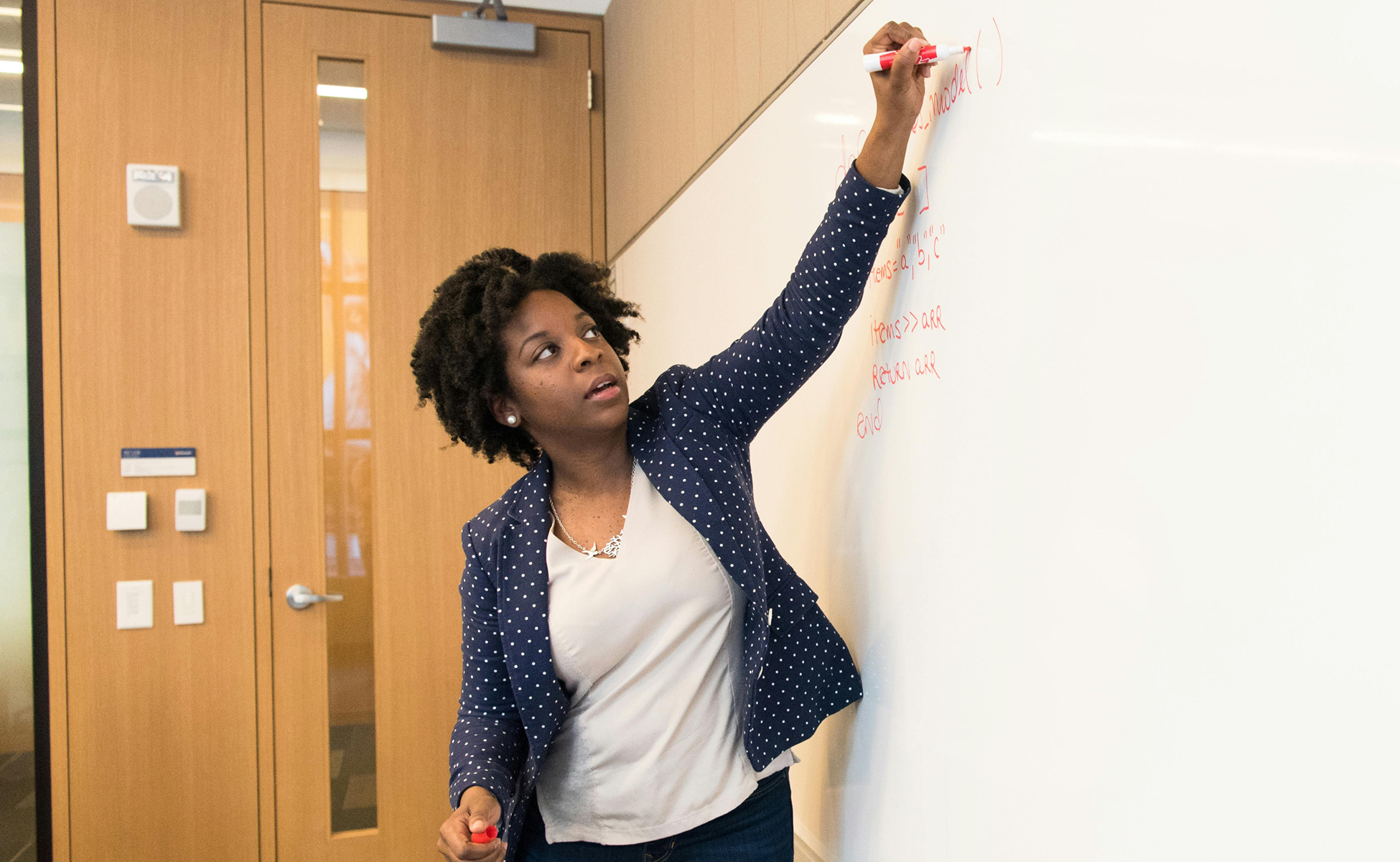There has been a significant rise in demand for Social-Emotional Learning in K-12 schools over the past few years. Our three-course, non-credit Micro-Credential program is designed for educators who are eager to introduce it into their academic curriculum due to its numerous benefits.
You can earn a badge for each course, and if you take all three courses and earn three badges, you can receive the micro-credential.
What You'll Learn
All of our workshop-style courses equip participants with the awareness and insight needed to understand how social and emotional development comprises specific skills and competencies that people need to set goals, manage behavior, build relationships, and process and remember information. These skills and competencies develop in a complex system of contexts, interactions, and relationships, suggesting that schools must take a comprehensive approach to promoting social and emotional development.
You will learn to:
- Identify the importance of whole child development on the academic performance and postsecondary readiness.
- Learn and dive deeper on how to integrate five competencies of social and emotional learning (Self-Awareness, Self-Management, Responsible Decision Making, Relationship Skills, and Social Awareness) into the systemic structure of the whole school and weave these competencies into everyday instruction.
- Reflect on the concepts of their own social-emotional skills and unpack the successful strategies of building emotional support for their students.
Courses
Upon completion of each course, you will be awarded a badge associated with that course.
All Learning is Social and Emotional
All Learning is Social and Emotional is a 15-hour, non-credit course engage in the history of development of Social and Emotional Learning intertwined with emotional intelligence and character building, will learn how to integrate five competencies solidified by Collaborative for Academic, Social, and Emotional Learning Framework, differentiate between social-emotional learning instruction and mental health supports using Multi-Tiered Systems of Support Framework, and start developing the plan for systems and structures of supporting the Whole Child in the school or classroom settings.
Social-Emotional Learning and Adult Development
Social-Emotional Learning and Adult Development is a 15-hour, non-credit course about intersectionality of the strong emotional intelligence skills of the teacher or school leader in the support of child development, reflect on their own strategic plan of dealing with difficult situations in the classroom, learn in the moment trauma-informed practices, and engage in building self-efficacy to achieve equity for their students using Culturally Responsive and Sustainable Education Framework.
Weaving Social-Emotional Learning into Everyday Instruction
Weaving Social-Emotional Learning into Everyday Instruction is a 15-hour, non-credit course on how weaving Social-Emotional Learning and core instruction together helps establish a mutually reinforcing relationship between the two. The goal of this module is to describe each of the social-emotional learning skills outlined by the Collaborative for Academic, Social, and Emotional Learning and provide educators with potential instructional strategies, entry points, and sustainable practices through which they can deepen their planning and implementation of competency-related activities in their daily lessons and interactions with students. These practices can be used cross-content and are designed for all teachers to attempt to incorporate into their daily planning.
After completing all three-courses and receiving all three badges you will automatically be awarded a non-credit Micro-Credential in Social-Emotional Learning and Academic Development.
We Can Help You Build Your Career Goals!
Research is clear that when schools invest in building students’ social and emotional skills, they are more successful personally and academically, performing better on standardized achievement tests, graduating high school at higher rates, and having lower instances of school misconduct and emotional distress. Where the field of education is evolving is to understand that this skill development must occur within the context of daily academic instruction, as opposed to during a self-contained social-emotional block that occurs once per week for 20-30 minutes. This position is endorsed by the leading social-emotional learning organization, CASEL, and is being embraced by school districts across the country in various capacities. Because this represents a shift in practice, it is essential that higher education institutions prepare educators accordingly.
Upon completion participants will be able to identify the importance of whole child development on the academic performance and postsecondary readiness, learn and dive deeper on how to integrate five competencies of social and emotional learning (Self-Awareness, Self-Management, Responsible Decision Making, Relationship Skills, and Social Awareness) into the systemic structure of the whole school and weave these competencies into everyday instruction, and Reflect on the concepts of their own social-emotional skills and unpack the successful strategies of building emotional support for their students.
Admissions Requirements
These courses are tailored for children and youth providers working in education, health, not-for-profit, or government organizations. They are also beneficial to those working with the families of children and youth, and with work in communities. Whether your role or responsibility is that of direct service, supervision of those in direct service, out-reach to families and caregivers, or community advocate, the courses sharpen your awareness of engagement and interaction. There are no prerequisites for the courses.
Ready to start? Navigate to the Social-Emotional Learning and Academic Development Micro-Credential page in the Catalog to enroll in the current offerings.
Contact
Questions about course schedules or the program or want more information?
Julie Mchedlishvili
jmchedli@touro.edu


